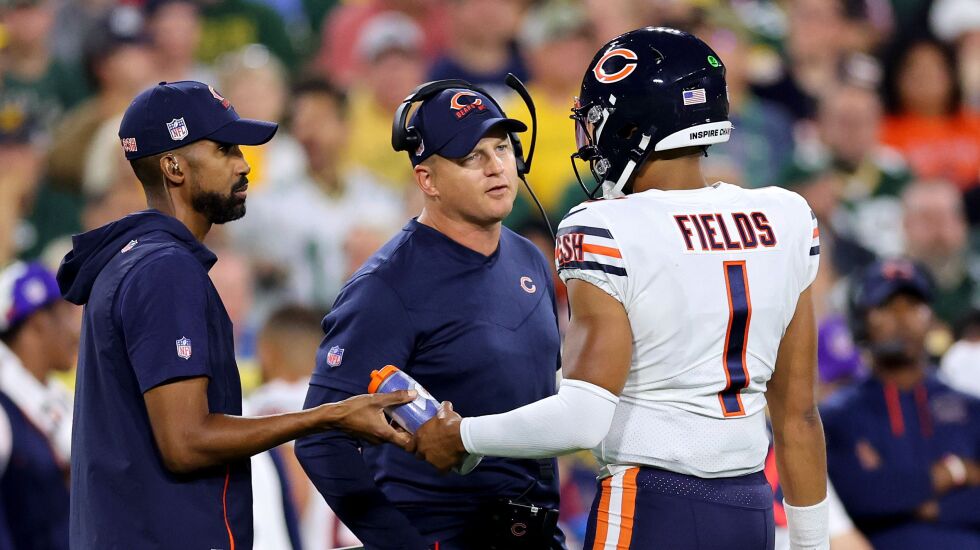
Bill Belichick eats young quarterbacks for breakfast.
In his 22 years as the Patriots head coach — during which he became an icon of the sport — Belichick has faced a first- or second-year starting quarterback 88 times. He’s 70-18.
About a third of the time, those quarterbacks threw two or more interceptions in the game. Almost two-thirds of the time, they had passer ratings under 80.
Only two quarterbacks, Tua Tagovailoa and Mark Sanchez, beat Belichick more than once during their first two years in the league.
Look away, Justin Fields.
It’s no shock that Belichick, one of the great defensive minds of his or any era, has dominated young quarterbacks. The six-time Super Bowl champion usually had better players than opponents who were so early in their rebuild that they felt the need to start a rookie.
More impressive than the talent gap, though, is the approach Belichick uses to baffle young quarterbacks. Belichick has specific sub packages for any occasion.
Per Pro Football Focus, the Patriots were in base defense 5 percent of the time in 2020. Last year, only two teams ran a base defense less often than the Patriots, who were in it only 11 percent of the time. In 2021, they used dime defense about a quarter of the time and nickel on two-thirds of their downs, adding extra defensive backs and predominantly playing man defense.
Through six games this season, the Patriots have run nickel 71.4 percent of the time, dime 18 percent and base defense about 10 percent, per TruMedia.
“They get real specific with putting the people in the game that they feel do the task the best,” Bears offensive coordinator Luke Getsy said. “So … you’re going to get a certain type of guys on the field on run downs. And if it’s an obvious passing down you’re getting certain guys on the field. So you’re getting their better personnel.”
That’s a challenge for Fields — and for Getsy, who is in his first year as an offensive coordinator. He’s about to play a chess match with a grandmaster.
The matchup has already begun. Bears coaches and players have been preparing for the different specialized packages the Patriots run. Getsy gave an example: if the Bears are in “21 personnel” — with two running backs and one tight end on the field — there might be three different sets of defensive personnel the Patriots could run onto the field. The Bears have to prepare for all three, and make their play calls — or audibles — in real time, based on where they think they have an advantage.
“That’s more work for you during the week as far as getting the guys prepared,” Getsy said.
Fields, more than anyone, has to be ready. At the line of scrimmage, he needs to know what he’s looking at — and what to change.
“It all depends on the play,” quarterbacks coach Andrew Janocko said. “It all depends on the situation, the scenario that we’re in at that time. We ask him to identify some things. We also try to give him as much information as possible when the personnel changes do happen.”
Lucas Patrick has spent all week studying. If he moves from left guard to center, as expected, he would be responsible for quarterbacking the offensive line and making blocking calls at the line of scrimmage.
The biggest part of preparation, he said, was understanding which Patriots personnel grouping he expects to be on the field in certain situations.
“[Belichick] is very good at making things seem different — but they’re really the same,” Patrick said. “It’s a very complex defense and personnel usage that he has in where guys play. But you have to understand what each player might be trying to do in that defense and attack him that way.
“All weeks you need to study, but this is a week you really have to understand numbers, personnel. What is typically their base position? But they can flex a bunch of guys in different positions. It’s really studying personnel and understanding which package is out there for defense.”







